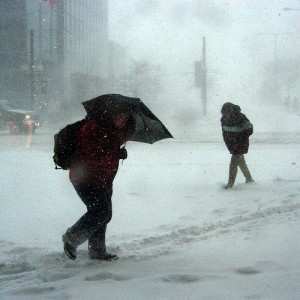This is the time of year when people start to feel desperate about jobs or internships and may be tempted to accept something, anything, just because it’s a job and a job right before graduation equals peace of mind. So you’re thrilled to get any offer and you say yes so your parents and friends will stop hounding you about what you’re doing after the semester is over and you breathe a big sigh of relief. I mean, ok, so it’s not your dream job but the places you were really excited about never called you back. Except…sometimes they do.
 Occasionally, you’ll later hear from an employer that you’re a lot more excited about that you’re invited for an interview or even that you have been offered the position. And here’s where things get difficult. You may hear from family members and friends things like, “Awesome! Just back out of that other job offer. What does it matter now that you have what you want? Plus, if you’ve just said yes on the phone and haven’t actually signed anything, it’s not like it’s legally binding anyway.” However tempting, this is seriously bad counsel.
Occasionally, you’ll later hear from an employer that you’re a lot more excited about that you’re invited for an interview or even that you have been offered the position. And here’s where things get difficult. You may hear from family members and friends things like, “Awesome! Just back out of that other job offer. What does it matter now that you have what you want? Plus, if you’ve just said yes on the phone and haven’t actually signed anything, it’s not like it’s legally binding anyway.” However tempting, this is seriously bad counsel.
Despite what you may hear, employers consider a verbal acceptance as good as signing a contract. While you’re not legally obligated, you’ve made a verbal commitment and there are definite consequences to reneging on an offer:
1) First and foremost, you can be pretty sure that you are ruining your chances of chances of ever working for that organization. Employers’ memories are long and you will forever have that figurative little black mark on your file.
2) In addition, you may be affecting your chances of working at similar organizations. Keep in mind that most industries are relatively small and that the people you angered by saying no may tell (warn) others in the industry about you. As you can imagine, this is particularly damaging in instances where the offer came through on-campus recruiting where recruiters from competing organizations all know each other, making it much less likely that such an individual would have interviewing options with any of those organizations in the future. In fact, we’ve even seen cases where the thwarted recruiter has called the employer with which the student is defecting to explain the situation and the new employer has pulled their offer (leaving the student with no offers).
3) Reneging on an offer damages the Penn reputation, and as such, future recruiting opportunities for Penn students. When you renege on an offer the employer doesn’t just think negatively about you, they also think negatively about Penn. In fact, we’ve often had to do serious “damage control” with employers who had one or multiple reneges from Penn students. It may only take one instance for them to conclude that “this is just the way Penn students are” and be less inclined to consider applicants from Penn in the future.
The way to avoid being in that situation is to not accept an offer without carefully thinking it through. You should never tell an employer yes if your plan is to continue to look until you find something better. It’s not fair to them and it’s untrue to you. There are always jobs out there and it is far better to wait for the right thing to come along than to damage your own career reputation by going back on your word.








